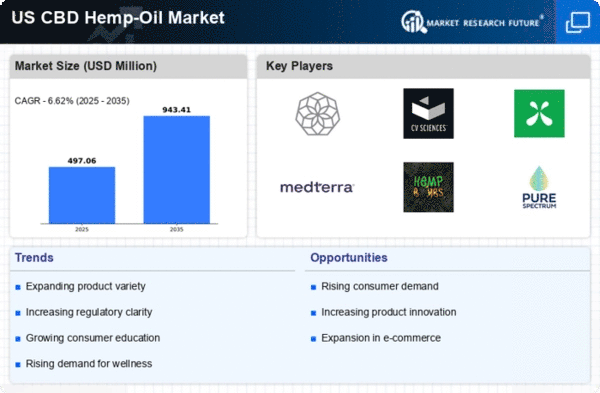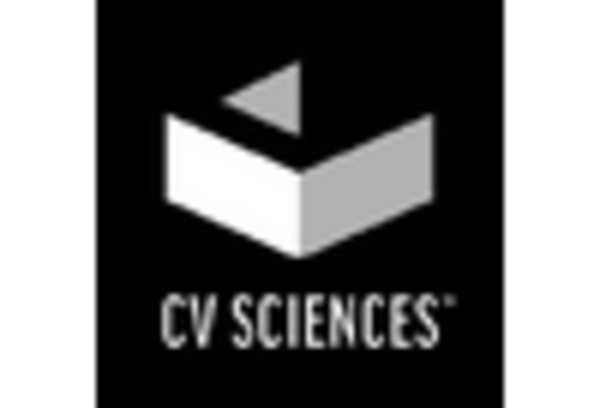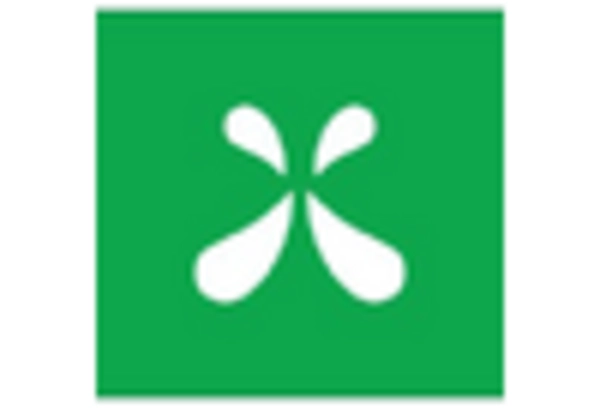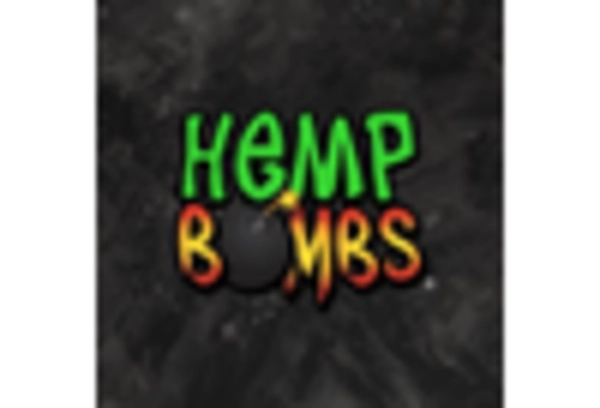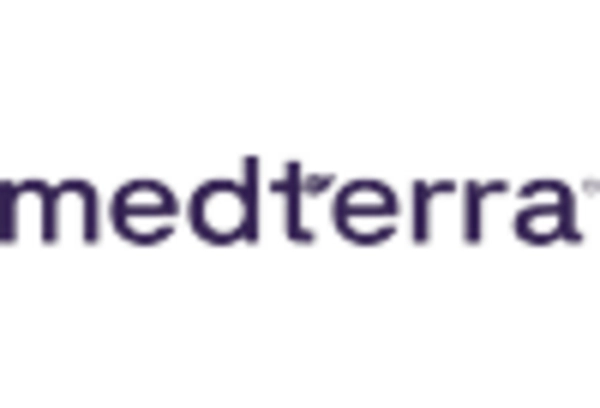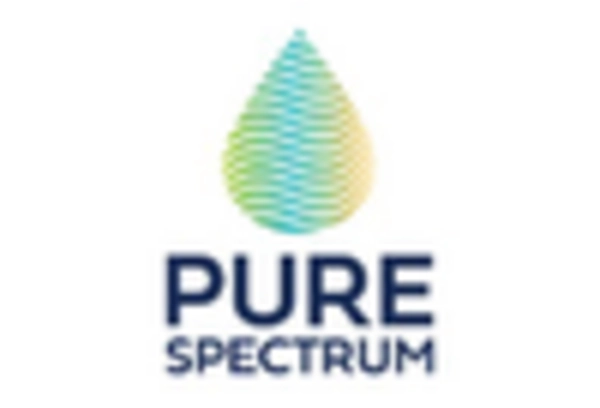Expansion of Distribution Channels
The expansion of distribution channels is emerging as a vital driver for the cbd hemp-oil market. Retailers, both online and brick-and-mortar, are increasingly incorporating CBD products into their offerings. E-commerce platforms have become particularly influential, allowing consumers to access a wide range of cbd hemp-oil products conveniently. Reports indicate that online sales of CBD products have surged, accounting for over 40% of total sales in recent years. This trend suggests that as more retailers embrace CBD, the market could experience accelerated growth. Additionally, partnerships between CBD brands and established retailers may enhance product visibility, further driving consumer interest and sales in the cbd hemp-oil market.
Increased Awareness of Health Benefits
Growing awareness regarding the potential health benefits of CBD oil is driving interest in the cbd hemp-oil market. Research indicates that consumers are increasingly seeking natural alternatives for health and wellness, with CBD being recognized for its potential therapeutic properties. Surveys suggest that nearly 60% of consumers are aware of CBD's benefits, such as pain relief and anxiety reduction. This heightened awareness is likely to translate into increased sales, as more individuals explore CBD products for personal use. The market could see a surge in demand, with estimates suggesting a potential increase in sales by 30% over the next few years. As consumers prioritize holistic health solutions, the cbd hemp-oil market stands to benefit significantly.
Rising Interest in Sustainable Practices
The increasing consumer interest in sustainability is becoming a notable driver for the cbd hemp-oil market. As consumers become more environmentally conscious, they are seeking products that align with their values. Brands that prioritize sustainable sourcing and eco-friendly practices are likely to attract a loyal customer base. Reports suggest that nearly 70% of consumers are willing to pay a premium for sustainably sourced products. This trend indicates that companies focusing on sustainability may experience enhanced brand loyalty and market growth. The cbd hemp-oil market could see a significant shift as more brands adopt sustainable practices, potentially increasing their market share and appealing to a broader demographic.
Diverse Product Offerings and Innovations
The cbd hemp-oil market is witnessing a surge in diverse product offerings, which appears to be a significant driver of growth. Companies are innovating by introducing a variety of CBD-infused products, including edibles, beverages, and topicals. This diversification caters to a broader audience, appealing to consumers with different preferences and needs. Market analysis indicates that the introduction of new product formats could lead to a potential increase in market share by 25% over the next few years. As brands continue to innovate and expand their product lines, consumer engagement is likely to rise, further solidifying the position of the cbd hemp-oil market in the health and wellness sector.
Regulatory Developments Favoring CBD Products
The evolving regulatory landscape surrounding hemp-derived products appears to be a crucial driver for the cbd hemp-oil market. Recent legislative changes have facilitated the legal sale of CBD products across various states, thereby expanding market access. The 2018 Farm Bill, which legalized hemp cultivation, has significantly contributed to the growth of the industry. As regulations become more favorable, businesses are likely to invest in the cbd hemp-oil market, anticipating increased consumer acceptance. This regulatory clarity may lead to a projected market growth rate of approximately 20% annually, as companies can operate with greater confidence. Furthermore, the establishment of quality standards and safety regulations could enhance consumer trust, further propelling market expansion.


